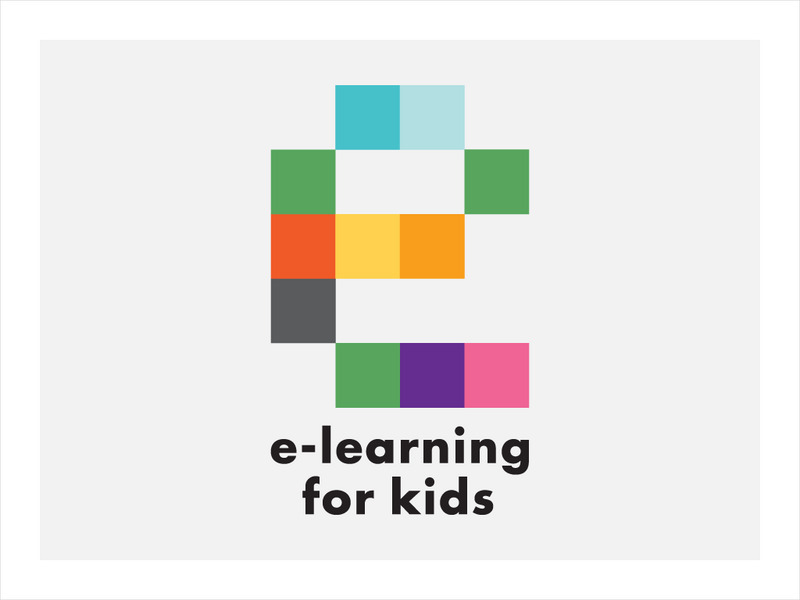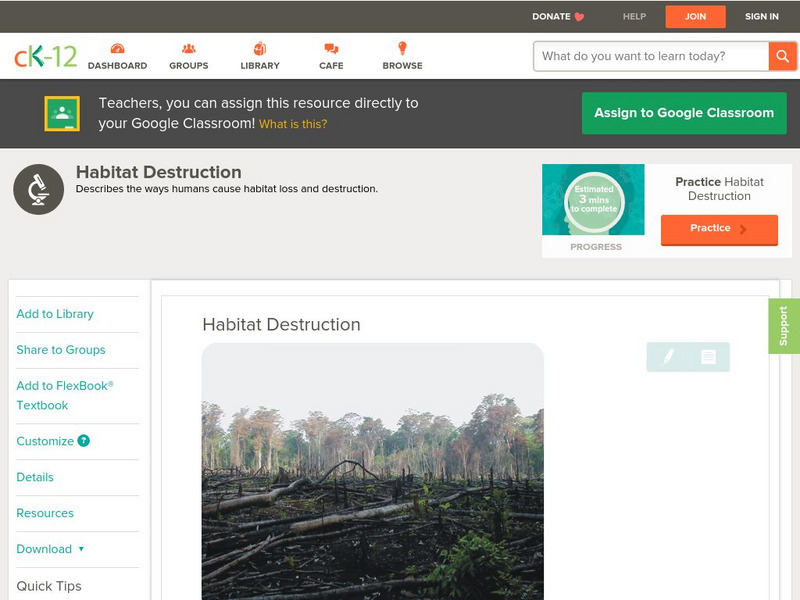Lerner Publishing
Teaching Habitats
What makes up a habitat? Use this resource to engage first graders in the exploration of desert, wetland, forest, and ocean habitats. Youngsters classify plants and animals into the four distinct habitats through drawings and cutting and...
Curated OER
Habitats of the World
Students complete a unit of eighteen lessons that cover climate, geography, location, plants, and animals of each of the five habitats. They are also introduced to habitat destruction and discuss ways to protect the environment. They do...
Columbus City Schools
Get Your Organisms Organized
From large to small, show your class how to organize them all! Included within the guide is everything you need to take their knowledge of classification from the cellular to the species level. The worksheets focus on...
Curated OER
Sustainability and Extinction
Galapagos Penguins are the only penguins on earth that live north of the equator (in the wild). In this last lesson plan a discussion on how the Galapagos islands developed their populations and diversity sparks the introduction. Two...
Association of Fish and Wildlife Agencies
Schoolyard Biodiversity Investigation Educator Guide
In 1980, in the tropical rainforests of Panama, scientists discovered 1,200 species of beetles living in and around just 19 trees, with most of the species new to science—that's biodiversity! In the activity, learners work in teams to...
Wonderville Media
Wonderville: Ocean Habitats
Habitats are places where plants and animals live. There are many different habitats in the oceans of the world. Every plant and animal in the ocean prefers a particular habitat. Learn about Ocean Habitats in this well-constructed...
E-learning for Kids
E Learning for Kids: Science: Hawaii: What Can We Find in a Garden?
Daisy is learning all about the animals and plants that live in her beautiful garden. Join her and learn about habitats, too.
E-learning for Kids
E Learning for Kids: Science: Pacific Ocean: What Can We Find on a Beach?
Josephine lives on the Marshall Islands. Follow her to the beach and find out what kinds of plants and animals live there.
TeachEngineering
Teach Engineering: Biodomes
Students explore the biosphere's environments and ecosystems, learning along the way about the plants, animals, resources and natural cycles of our planet. Over the course of lessons 2-6, students use their growing understanding of...
The Wild Classroom
The Wild Classroom: Biomes of the World: Tropical Rainforest Biome
Learn all about the Tropical Rainforest biome. Learn where rainforests are found, what defines a rainforest, layers in the rainforest, and plants and animals of the rainforest. See 2 videos about the rainforest.
CK-12 Foundation
Ck 12: Life Science: Terrestrial Biomes
[Free Registration/Login may be required to access all resource tools.] A terrestrial biome is an area of land with a similar climate that includes similar communities of plants and animals. Different terrestrial biomes are usually...
Polk Brothers Foundation Center for Urban Education at DePaul University
De Paul University: Center for Urban Education: Prairie Changes [Pdf]
"Prairie Changes" is a one page, nonfiction passage about the changes in the prairie over time and the effect it has on plants, animals, and habitats. It is followed by an open-ended question which requires students to provide evidence...
CK-12 Foundation
Ck 12: Life Science: Habitat Destruction
[Free Registration/Login may be required to access all resource tools.] From a human point of view, a habitat is where you live, go to school, and go to have fun. Your habitat can be altered, and you can easily adapt. Most people live in...













